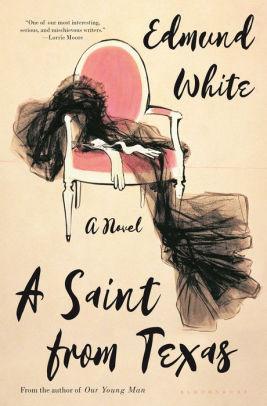
HISTORICAL FICTION
Edmund White
Bloomsbury Publishing
Hardcover (also available as an e-book), 978-1-6355-7255-1, 304 pgs., $26
August 4, 2020
In sleepy 1950s Ranger, Texas, twin sisters Yvonne and Yvette have their lives upended when their mother dies, and their father, who made his money in oil, remarries a “fancy lady” named Bobbie Jean who wasn’t going to live in an old house “with swamp coolers instead of ceiling fans.” Bobbie Jean is ambitious; soon the family has moved into a mansion in the Turtle Creek area of Dallas, and the twins are introduced to the Hockaday School, the tearoom at Neiman Marcus, and society debuts.
Yvonne, outgoing and audacious, embraces her new life, making her debut and going on to a sorority at the University of Texas at Austin and a semester abroad in Paris. Yvette shrinks from the materialism and prejudice of Dallas society, instead embracing an ascetic Catholicism; she, too, enrolls at UT, and it is in Austin that Yvette is credited with her first miracle. The sisters’ lives diverge profoundly as Yvonne remains in France, marrying into the aristocracy, and Yvette travels to a Colombian convent, devoting herself to a life of service.
A Saint from Texas is the new novel from living literary legend Edmund White, a giant in American letters, celebrated in international literary circles, and a pioneer in LGBTQ literature. In this comedy of manners, White immediately subsumes the reader in time and place, his distinctive voice claiming us from the first page, leaving me chuckling, shaking my head in admiration.
A Saint from Texas is told in a first-person narration by Yvonne, as she looks back from the future. Yvette is revealed through her twin sister’s eyes, her only direct contribution to the story coming in epistolary form as she writes to Yvonne about her life in the Colombian convent.
While White’s novel is a comedy of manners—the multiple, ongoing culture clashes are laugh-aloud funny—it is also a deep dive into character. The twins are complete in their rendering on the page, and their development is simultaneously a joy and a calamity. Yvonne and Yvette experiment, learning hard-won truths about their sexualities, priorities, compulsions, strengths, and weaknesses. Yvonne’s often bawdy voice belies a lifelong battle between the superficial and creeping self-awareness, which White balances exquisitely; while Yvette’s crucible and abnegation are rooted in tragedy, a guilt not her own.
Despite the page count, A Saint from Texas is not a quick read, due to extensive blocks of exposition, but it flows evenly and almost flawlessly as Yvonne’s effort to set the record straight and obtain a form of justice for Yvette. I have a quibble involving Texas geography. Ranger (where an uncle of mine attended junior college on a baseball scholarship in the 1960s) is not in East Texas. This would be a small thing, but it arises throughout, Yvonne’s accent repeatedly referred to as an “East Texas twang.” Her accent is a Texas accent, a twangy accent, but it is not an East Texas accent—there, I feel better now. White does get exactly correct our bizarre use of “fixing” to mean “about to,” as in, “I’m fixin’ to go to the store.” Kudos to the design team at Bloomsbury for this beautiful physical specimen, very 1950s with a nod to Dior.
White has us cheering on his Texas sisters, his opposite twins, urging them on as they struggle, in very different ways, against the suffocating social strictures of societies that demand conformity and punish women who insist on forging individual paths outside the routes of marriage or the nunnery—each a form of martyrdom—traditionally offered to women.
“Although I still appeared the soul of Southern graciousness with an admixture of French aristocratic ostentatious politeness, I secretly imagined violent revenge and sadistic scenarios.”
Edmund White is the author of many novels, including A Boy’s Own Story, The Beautiful Room Is Empty, The Farewell Symphony, and Our Young Man. His nonfiction includes City Boy, Inside a Pearl, The Unpunished Vice, and other memoirs; The Flaneur, about Paris; and literary biographies and essays. He was named the 2018 winner of the PEN/Saul Bellow Award for Achievement in American Fiction, received the National Book Foundation’s 2019 Medal for Distinguished Contribution to American Letters, was made an officer in the French Ordre des Arts et des Lettres, and won a literary prize from the Festival of Deauville. He now lives in New York and teaches at Princeton University.
